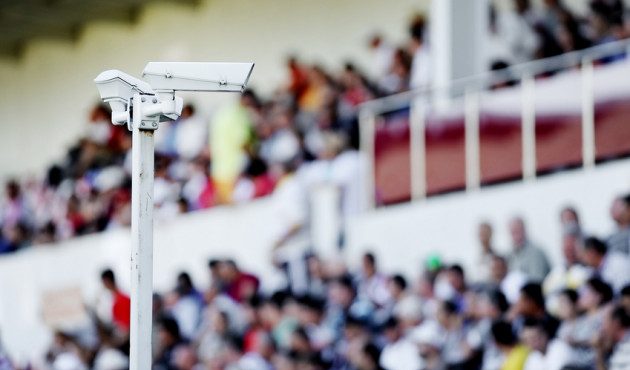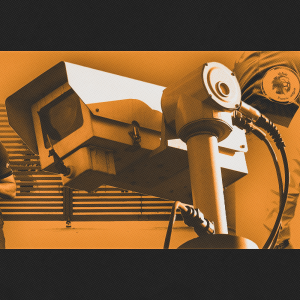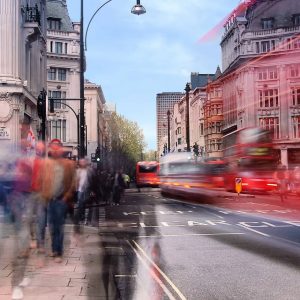Decide to Survive
By Murray Perrett –Are you thinking of staying a little closer to home this year for your family holiday, instead of venturing to a previously popular hot-spot? Or perhaps you are seriously considering turning down that golden ticket at Euro2016, due to ‘kick off’ (pun intended) in France later this week? If you are, then you are definitely not alone! According to a recent travel survey, 30% of UK travelers now rate the general safety and security of a destination as the most important factor when deciding where to go on holiday. This figure is undoubtedly rising following recent atrocities, such as the attacks in Istanbul and Paris, those witnessed on the previously tranquil beaches of Tunisia in June last year, or the news released just yesterday of the Ukrainian Secret Service who arrested a Frenchman who had been plotting 15 separate attacks planned before and during Euro 2016.
The ‘staycation’ or the choice of a ‘safer’[1] European location, such as Spain, Portugal and Greece continue to grow in preference following the comments by European Intelligence agencies that Islamic State of Iraq and the Levant (ISIL) are planning to conduct attacks on resorts along the Mediterranean sea, [2] and the increasing foothold that ISIL are developing in Libya, so close to those resorts[3].
In reality, a tourist, or any other traveller, is far more likely to fall victim of a theft or medical issue when travelling than the victim of terrorism, and it is very unlikely that they will ever need to use the following advice. However, an understanding of how to survive a terrorist style attack and what to expect, has never been more timely.
Tell Someone Before You Leave
The idea of just jetting off is very romantic, but before you leave, let someone know where you are going and how to contact you whilst away. In the aftermath of a terrorist incident the authorities both British, and in your host country, will want to know who is accounted for and who is missing, as will your family. In addition, social media platforms such as ‘WhatsApp’ or ‘Facebook’, (making sure that the privacy settings are selected), are other ways of keeping your contact at home updated.
Take a little time
The time to plan for a crisis is not while it is happening. When you get to your city, hotel or resort, spend a little time to familiarise yourself with the local area, the layout of the hotel or your accommodation and take a moment to think where you could escape to. This is not just about a terrorist attack, but equally important when a fire alarm goes off.
Crowded spaces
Visiting other countries often involves being in crowded places. Whether a attacker is a self-radicalised ‘Lone Wolf’, or a cell member acting with others, a crowded place, be it a beach resort, museum or other popular location, provides them with the opportunity for high levels of causalities and the media attention they crave. Crowded places offer, to use a business analogy, a decent return on the time, effort and funds that have been invested in an attack.
It would be churlish to suggest that you should avoid such places and in the current climate many of these locations may have a visible police or security presence. But an attacker will always have the advantage of surprise. Try not to spend any more time in crowded areas than you need to. Whilst its lovely to sit outside a nearby café admiring the view, there are equally nice cafés that can be found in nearby side streets, a little off the beaten tourist track. The same can be said for researching restaurants before a night out. Finding places favoured by local people not only enhances your experience, but also helps reduce the risk to you.
If you are attending a concert, sporting event or a theatre, try and arrive early and be one of the first to get access to the venue. As the start time gets closer, so does the rush to gain access to the venue. This rush creates a dense crowd of people trying not to miss the start.
Hotels
Selecting a suitable hotel is difficult when balancing conflicting needs. Do you pay more to be located closer to the city centre, or do you find something a little cheaper, further out but not so convenient. After the Paris, Istanbul and Brussels attacks, city centre locations are likely to offer higher levels of security with patrolling police officers and military personnel. However, a hotel away from the main tourist hubs or city centres, with the anonymity that they offer, is likely to be less attractive to an attacker.
Mental Attitude
There is a saying in the police service that “no plan survives first contact with the public”. In essence, no matter how much you plan, no matter how hard you try and cover all the options and possible outcomes, something, somewhere, somehow, will go wrong”.
This applies as much to emergency planning as it does to an attackers planning. Why is this important? Simply, no matter how much planning, training, preparation, reconnaissance and mental preparation an attacker undertakes, something in their attack is likely to go wrong. It is these unforeseen eventualities that give you the chance to survive. They may have weapons, but guns can jam, they may have bombs, but they can fail to detonate, do not assume that you cannot get out alive.
If in the very unlikely event you do find yourself in one of these horrendous situations make one fundamental decision. Decide to survive, decide that no matter what happens over the coming minutes or hours, you will not be a statistic. Hostages who decide that they are not going to be victims, who do everything they can to stay alive, mentally keeping as much control over their lives as possible, tend to have better outcomes. By adopting a victim mentality you are allowing the attackers to win before they have started.
Decide on a plan and execute it. Your attackers will be working to their plan, trying to bring control to the situation and achieve their objectives, your plan may catch them out, put them on the back foot, give you the chance to escape.
Keep breathing
Unless you are a very unique human being, you will be scared. The flight, fight or freeze response, sometimes called hyperarousal or acute stress response, is an innate physiological response to a perceived threat. It is your body’s way of preparing you for the threat. This is normal and unless you freeze, its good. However, you do need to try and keep some control over the response and this is done by taking some deep breaths and slowing your breathing. This sends signals to your brain, and in turn your autonomic nervous system to calm things down. This will help you think more clearly and prevent blind panic setting in.
Run, Hide, Fight or Tell?
Shortly after the Paris attack, both the United Kingdom and United States Governments issued advice on how to deal with a terrorist attack. The UK government advice attracted criticism[4] for not highlighting the possible need to fight an attacker. While the US advice in part may reflect the greater availability of firearms in the US both sets of advice are pertinent.
- Run: More speed, less haste. Try and run away; blindly running is likely to cause panic and may cause you to trip, if you are running in a large group you may get trampled. Go back the way you came if you can, unless this takes you towards danger. Having come from this direction you already have an idea of the route and will reduce the chances of getting lost. Alternatively, if you are inside, follow the fire escape signs, these normally lead to the outside of the building. Do not burst out into the street. Open the door, look outside and identify yourself to any police or military personnel. They will not have a clear idea of what is going on and will assume that everything is a threat until they have cause to think otherwise.
- Hide: Cover from fire or cover from view. Ideally, if bullets are being fired then you need to hide behind something substantial like a brick wall or other solid object (cover from fire). If nothing else, get out of sight (cover from view), by not being seen there is a chance you will get missed.
Having got out of sight try and see if there is something that will give you hard cover and which you can reach without being spotted. If inside a building, it might be sensible to hide in a room. Once inside lock the door if possible, in the early stages of an incident the attackers are likely to move quickly taking advantage of the element of surprise and might bypass locked rooms, planning to return later.
Remember that while you are hiding, you might also be trapped. Look to see if there is another route out of your hiding place and be prepared to escape.
- Tell: It is worth trying to get a call to the emergency services or another person who can call on your behalf and tell the emergency services where you are. Only do this if it is safe to do so. You will be asked questions about what you have seen and heard, the operator will be looking for an idea of numbers, weapons, anything that helps the authorities develop an intelligence picture and regain control.
- Fight: This is a tough call and depends on the sort of person you are, your experiences and your physical ability. Getting into a fight should be avoided at all cost, but it is worth remembering that the attackers want to kill you and as many other people as possible. It is possible that they do not care if they die for their cause. Contrary to the choreographed fight scenes you see in films; this is going to be nasty and scrappy and you need to give yourself every possible advantage you can. Queensbury rules do not apply here. Find something like a fire extinguisher or other heavy object and strike first, using the element of surprise. Biting, gouging, poking eyes, hitting the groin, or around the head are all in play. Ultimately you have nothing to lose and possibly everything to gain. Sadly the film industry has given many people the idea that you can incapacitate someone and then they will stop or give up. They will not, unless they are unconscious they will always be a threat.
Emergency Services Response
If you do find armed police or military personnel arriving on the scene, do not be surprised if they pass you by or even restrain you. Their priority is to neutralise the attackers and gain control of the situation, only then will they start to employ first aid or stop to assist you. They might pass you a medical dressing and tell you how to use it before leaving you to get on with it. Alternatively, they might point you in the direction that they have just come from. This will be a reasonably safe, cleared route, follow their directions. And just when you think you have got to safety you may end up on the floor handcuffed. Try and remain calm, you will be released as soon as possible, once it has been established you are not an attacker and pose no threat.
Post-Incident Reaction
Very few people will go through such a traumatic event and not be affected. Initially, as the adrenaline levels fall and the body return to a normal arousal state, then crying, shaking, elation and being jumpy are all normal. Over time these will ease as you return to ‘normal life’. You may be offered help, this is a personal choice but early intervention often helps and can help prevent more chronic, protracted problems in the future.
[1] Guardian 27th January 2016 ‘Terrorism fears see UK tourists opting for ‘safer’ holiday locations’ http://www.theguardian.com/travel/2016/jan/27/terrorism-fears-see-uk-tourists-opting-for-safer-holiday-destinations
[2] The Times 20th April 2016 ‘ISIS plots terrorist attack at beach resorts’ http://www.thetimes.co.uk/tto/news/world/europe/article4735692.ece
[3] Newsweek 11th March 2016 ‘ISIS IS THE REAL WINNER IN LIBYA’ http://europe.newsweek.com/misunderstandings-libya-make-isis-real-winner-435998
[4] The Sunday Times 22nd November 2015 ‘Official advice to ‘run, hide, tell’ not remotely helpful, say experts’ http://www.thesundaytimes.co.uk/sto/news/focus/article1636088.ece










